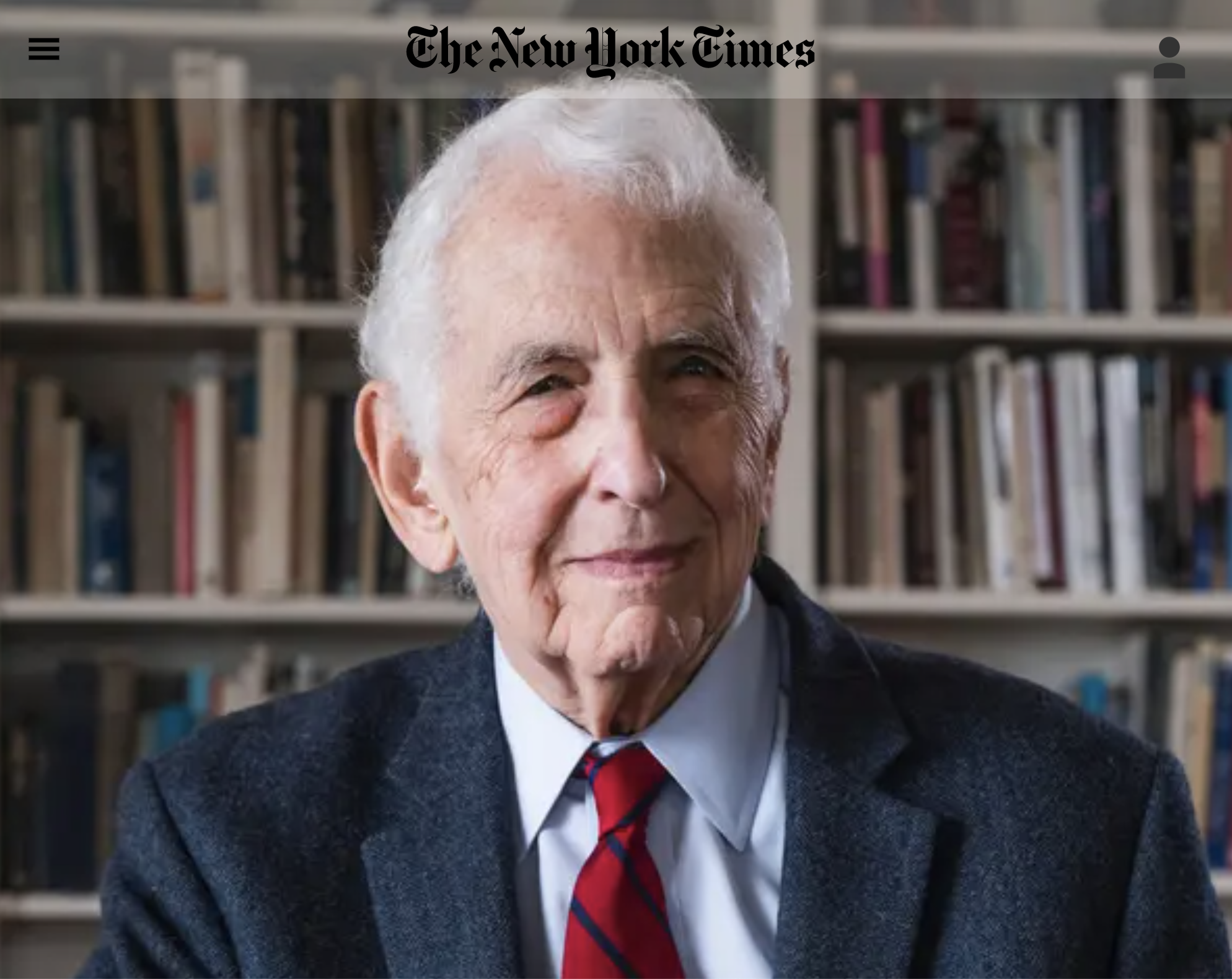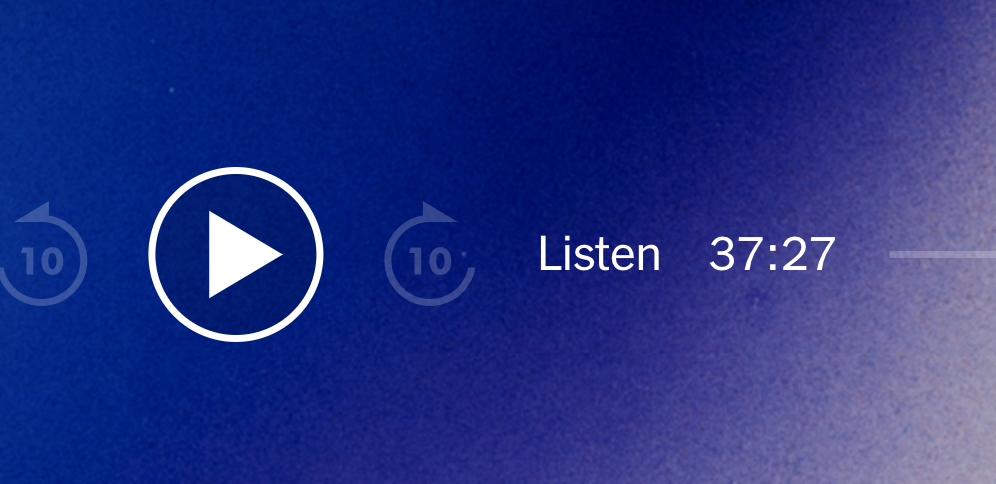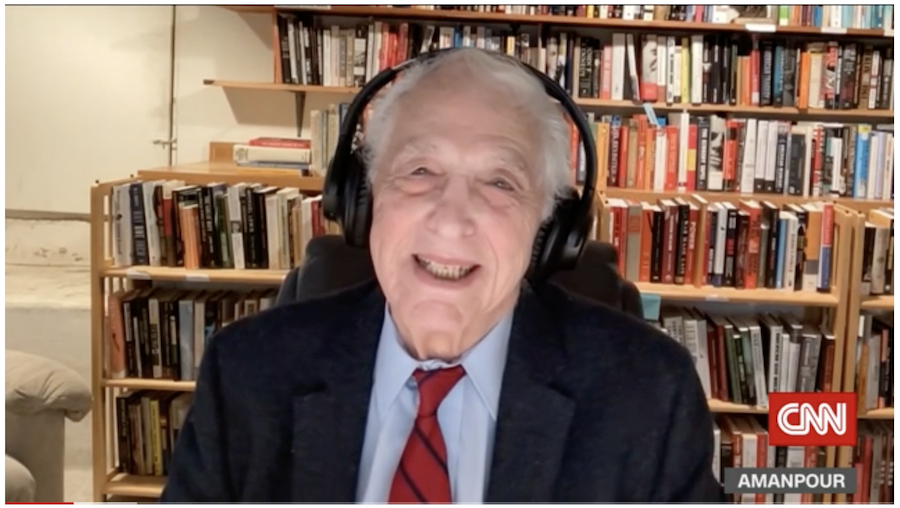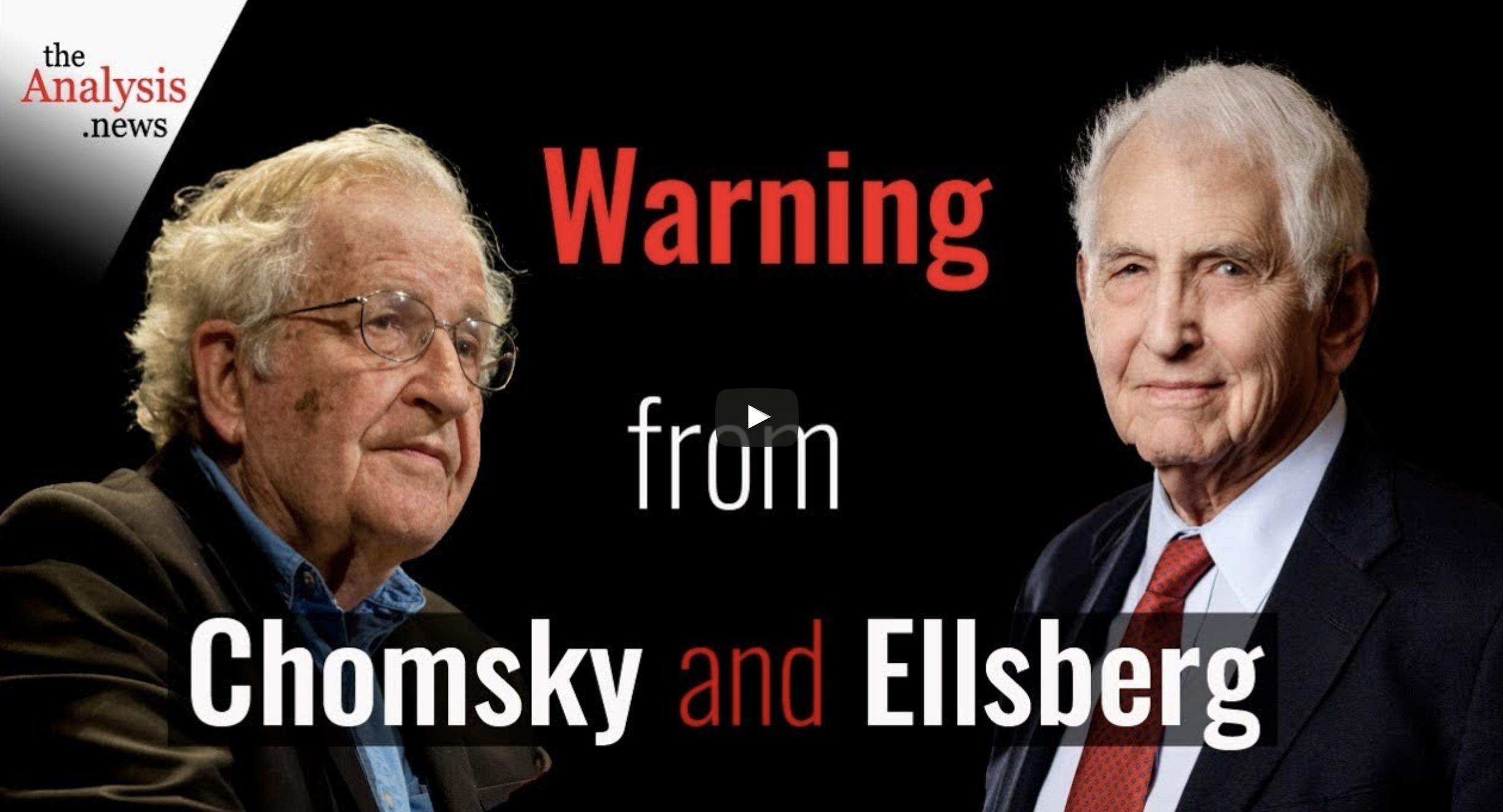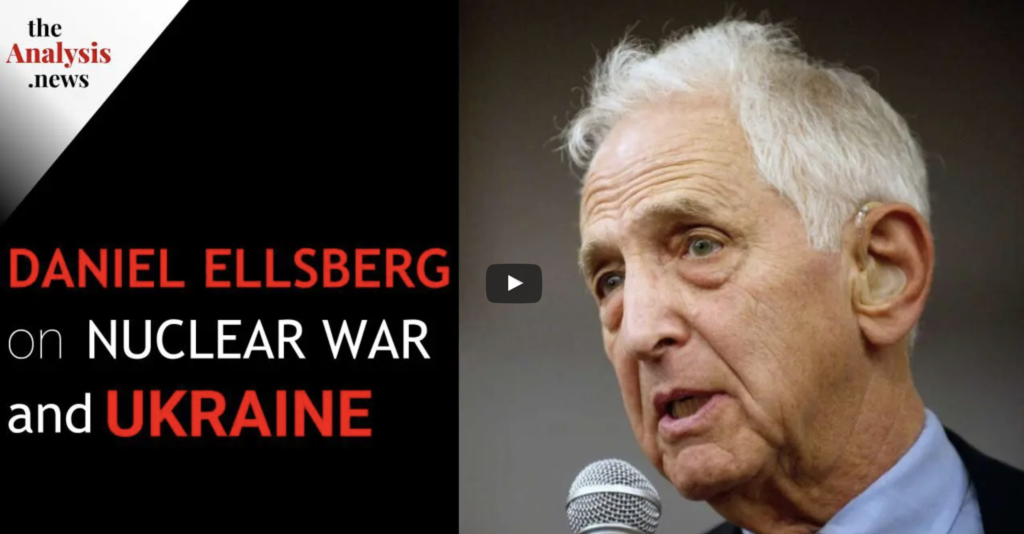by Thomas Reifer
At the height of global demonstrations against Israel’s radically disproportionate response to the horrific October 7, 2023 terrorist attacks by Hamas against Israel, which killed some 1,200 people with 240 hostages taken, headlines around the world proclaimed that Israeli Prime Minister Benjamin Netanyahu is vowing to go ahead with his long-planned full scale invasion of Rafah, in Gaza — at a time when some 30,000 Palestinians have already been reported killed by Israel.
How to explain Netanyahu’s determination to proceed at all costs, defying massive protests in Israel and across the world calling for a hostage deal and a ceasefire? It may be useful to revisit Daniel Ellsberg’s concept of the “Desperate Proposal Pattern,” a theme to which Ellsberg returned many times in his lectures, discussions and private writings on contemporary and historical happenings.
Ellsberg described the Desperate Proposal Pattern this way: “To avoid an ‘intolerable’ (infinitely negative) outcome, any measure with some chance of success is justified, no matter how low its probability of success, or how high its costs and risks. Hence there is no need to report or even calculate the latter considerations; it is enough to say that, unlike current policy, the one proposed is not certain to fail.”

